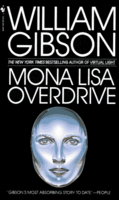But if educators were unsure what to do for undergraduates, the implications for graduate education were clear enough: The drive to ever greater research-based specialization was on. Over the past two decades in particular, universities have further reorganized themselves to emphasize research, especially scientific research. This has meant adopting the superstar model of faculty recruitment (which generally includes an enticing package of high salaries, research funding, and reduced teaching). It has also meant the creation of research centers, stocked with graduate and postgraduate students, as sites often equal in importance to the disciplinary departments, and more important than departments for their capacity to attract external research funding. The rapidly growing research specialization of the university has had the effect of making the content of undergraduate majors themselves more and more specialized and research-based.
America’s Top University – Does college need to be reformed? By Stanley N. Katz is the opening article in a series, Slate Goes to College – A week of articles about higher education.
We all know the problem, but we don’t really want to do anything about it. We like our research perks and we don’t want to end up back teaching enourmous classes which we know are not about learning so much as processing.
The solutions are obvious, but they mean redesigning universities, not just fiddling with curricula. The solutions are:
- Look at the student experience, not courses. Design for a breadth of experiences from small group learning to project learning. And … yes, include lectures in that experience.
- Weave students systematically into research if you believe in the connection. Don’t leave it to luck or the need for bottle-washers in the summer. Create a team research model where students can join teams and apprentice.
- Trust students, don’t treat them like cheaters who have to be processed and examined.
- Allocate the teaching resources to when the students need good teaching, not when it is convenient to teach them. First year classes should be small not big. By fourth year students should be capable of independent study (if you taught them, that is.)
- Teach students to assess themselves. After all, if they don’t know what they know, how will they learn on their own.
